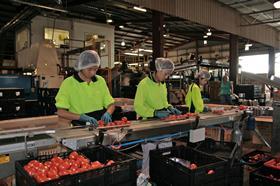
Australia’s House of Representatives voted to pass the legislation to tax backpackers at 19 per cent from the first dollar earned, down from 32.5 per cent proposed last year.
While the bill passed the lower house on Monday 17 October, the Opposition party has called for an inquiry into the bill as it introduces previously undebated proposals to increase taxes on backpacker’s superannuation to 95 per cent, and increase departure taxes on international travelers.
The Senate economics committee has agreed to review the bills by 7 November.
Joel Fitzgibbon, Labor agriculture spokesperson, told the House of Representatives the review was necessary, with critics of the backpacker tax concerned the 19 per cent tax rate, higher than comparable tax rates New Zealand and Canada, would be a disincentive for backpackers to find work in rural Australia.
'Treasury modeling shows that the fall off in backpackers will be no less at 19 per cent than it would have been at the original 32.5 per cent,” Fitzgibbon said, according to ABC Rural. 'I don't know what the good rate is, if we have to have a backpackers' tax, I don't have the Treasury machine to grind through the numbers [but] we know it's not 19 [percent]”
The new tax is due to take effect on 1 January, with the bills expected to pass parliament in December.
Industry body Ausveg has called for the January deadline to be pushed back until parliament has had the opportunity to debate the new backpacker tax proposal.
Fair Work finds backpackers vulnerable to exploitation
The revised backpacker tax has been passed through Australia’s House of Representatives just days after the Fair Work Ombudsman released a report calling for changes to the working-holiday visa.
The two-year national inquiry into the 417-visa, or working holiday visa, by the Fair Work Ombudsman has revealed that backpackers are vulnerable to exploitation and have limited awareness of lawful entitlements as workers in Australia.
Working-holiday visa holders are required to take 88 days of paid work in regional Australia in order secure their second-year visa, and while 38 per cent of the more than 4,000 working-holiday visa holders had a positive experience, 66 per cent felt employers took advantage by underpaying them, and 59 per cent said they were unlikely to complain as they feared employers wouldn’t sign off on their work.
Fair Work found it was also common for deductions from pay without written contracts.
The report recommends changes to 417 visa rules and laws, and recommended engaging academics and migration experts to research and help solve the labour-force issue in Australia,
Last year, 86,847 417-visa holders were granted in Australia, with 19,320 second-year visas granted, the majority if which we granted to workers from Taiwan, followed by the UK and South Korea.
The inquiry was established in August 2014 as part of the broader Harvest Trail Inquiry into improving work conditions and workers rights in the horticultural industry.



